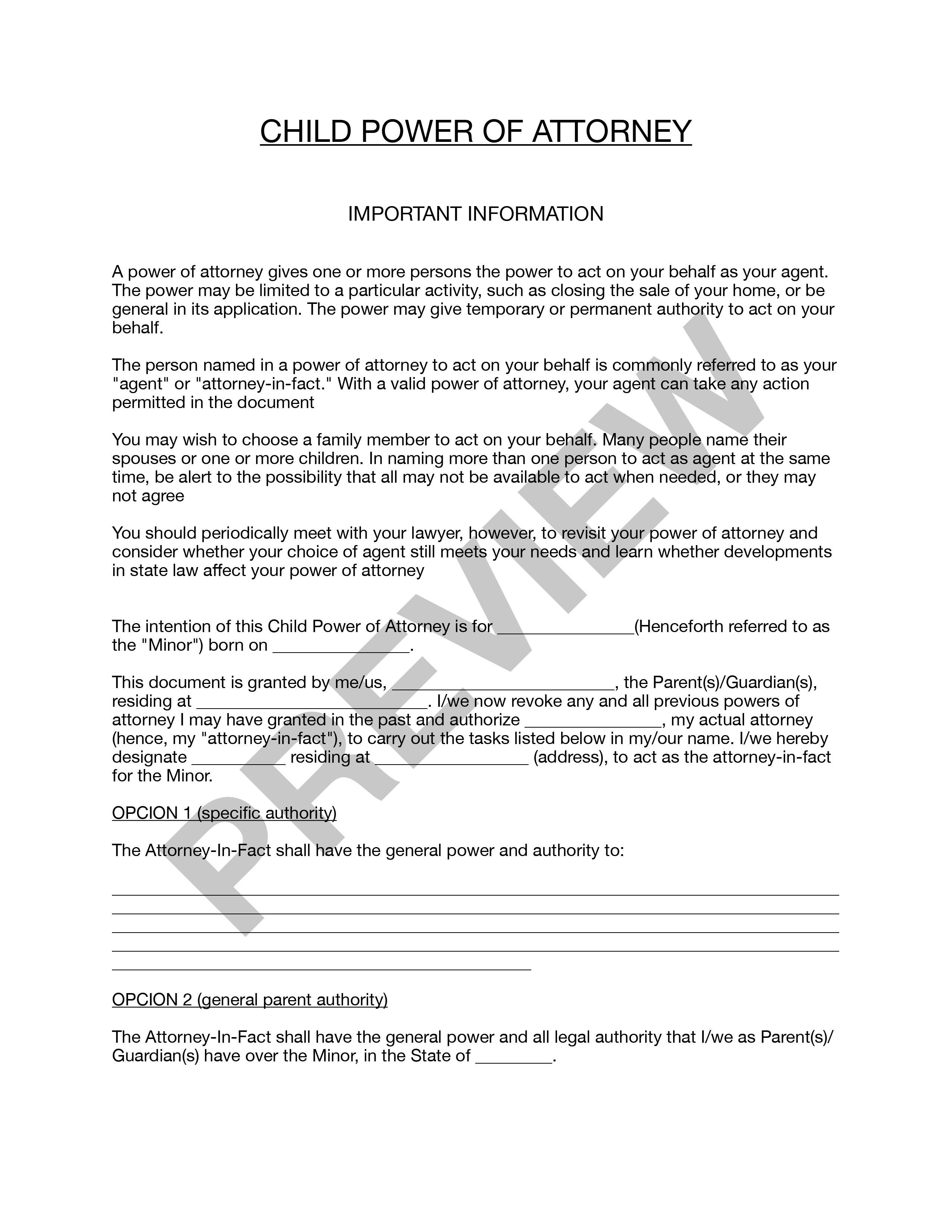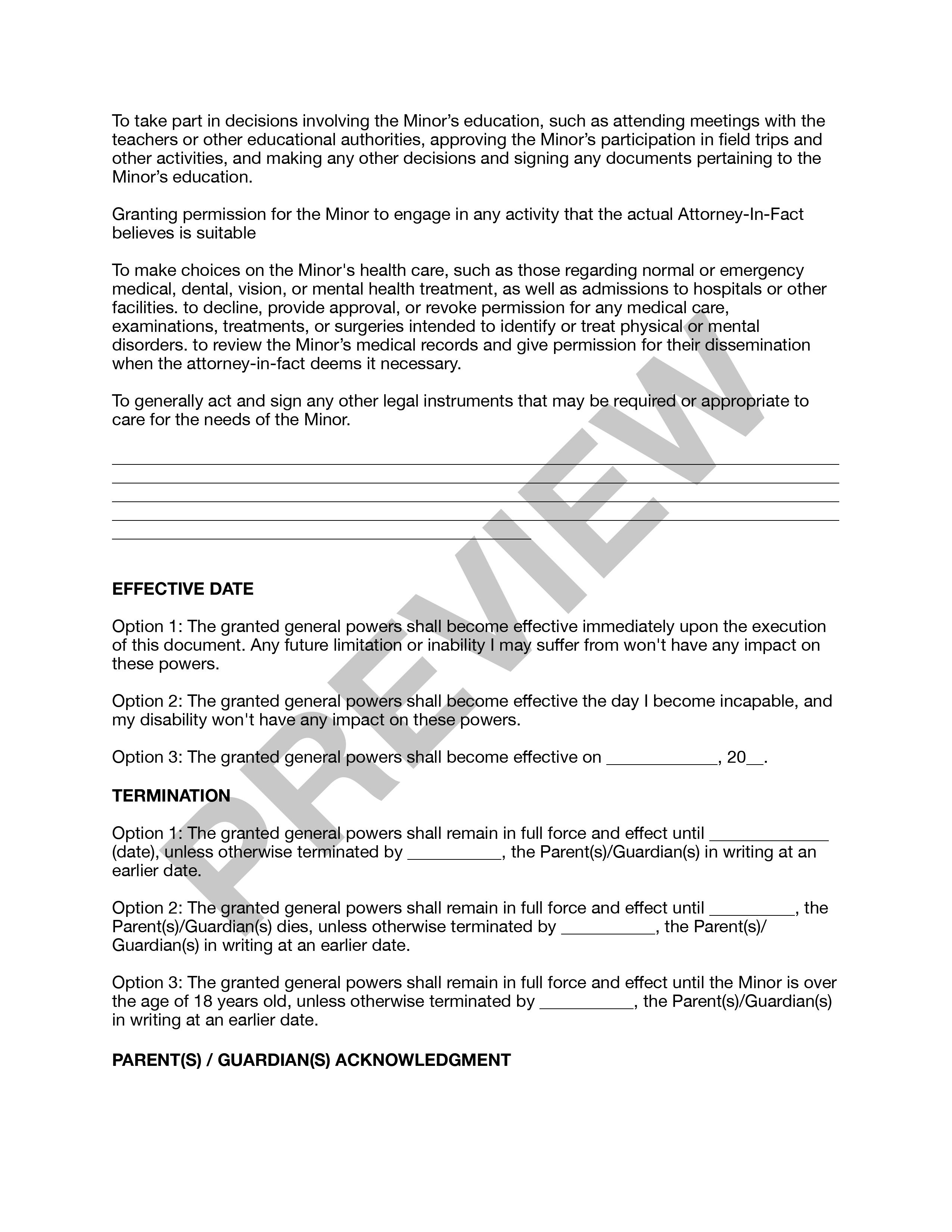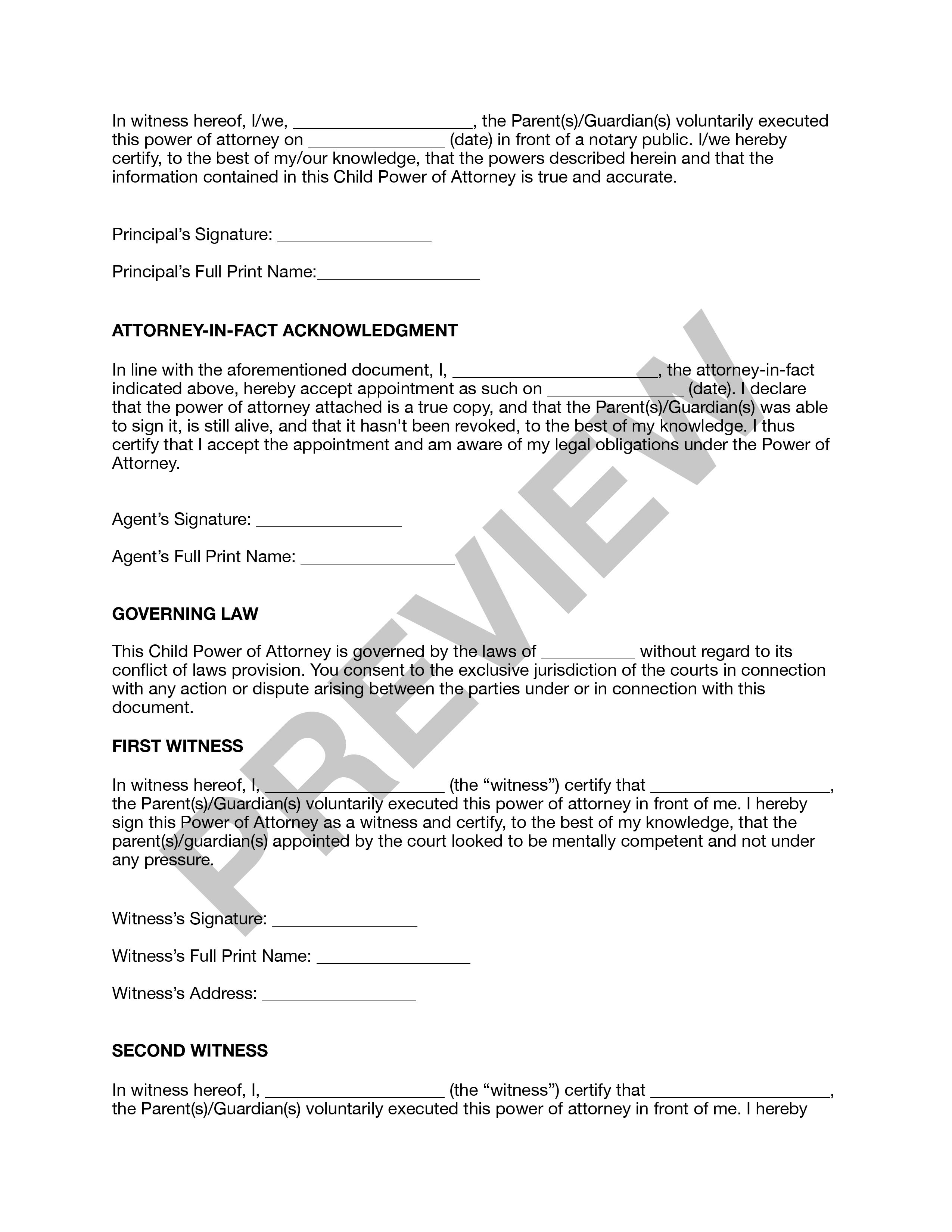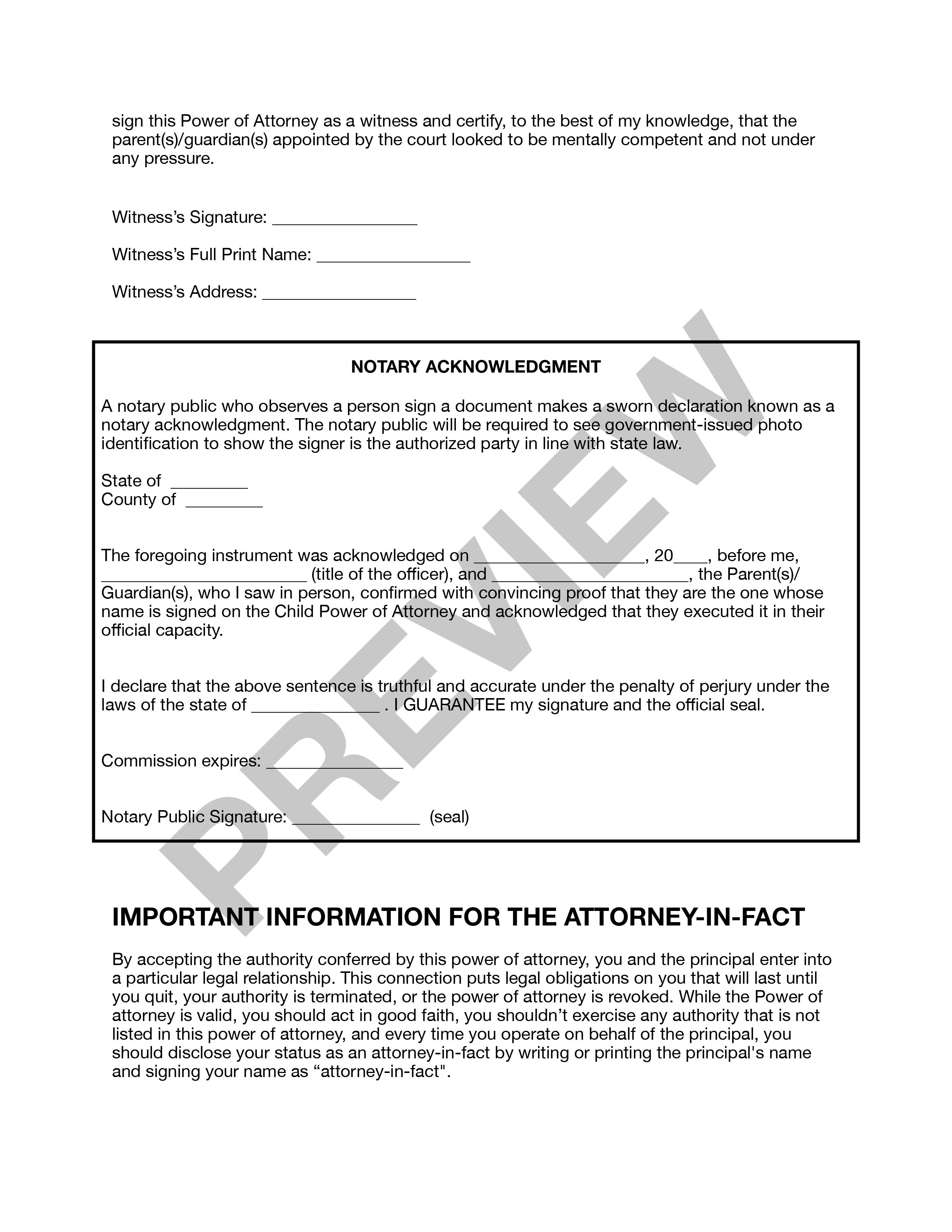Child Power of Attorney
Get Started
Additional Instructions
Child Details
Parent/Guardian Information
The parent or legal guardian is the person who has legal responsibility for the child's care, welfare, and upbringing.Second Parent/Guardian Information
Agent Information
The Agent (also referred to as the attorney-in-fact) is the person who is designated by the parent or legal guardian to act on behalf of the minor child in their absence.Successor Agent Information
Effective Date
Final Details
First Witness (You can fill later)
Second Witness (You can fill later)
Frequently Asked Questions
When creating a child power of attorney, you should choose the state where your child will be located while you are away. This is important because the laws governing child custody, medical decisions, education, and other matters related to your child's care and well-being can vary from state to state.
If you will be traveling with your child across state lines, you may want to consider creating a child power of attorney for each state you will be visiting to ensure that the document is legally enforceable in each state.
A child power of attorney is a legal document that grants an adult (usually a parent or guardian) the authority to make decisions and take actions on behalf of a minor child. This document is used in situations where the parent or legal guardian cannot be present or make decisions for the child due to an extended absence, illness, or other circumstances. The power of attorney can cover a range of responsibilities, such as medical decisions, education, and financial matters. It is important to note that a child power of attorney does not terminate the legal authority of the parent or guardian but rather grants additional authority to the appointed adult.
Granting General Authority on a child power of attorney means that a legal document is created which gives someone else (the attorney-in-fact) the power to make decisions and take actions on behalf of a child. This can include decisions related to the child's education, healthcare, finances, and other important matters.
In addition to the powers granted to the attorney-in-fact, a child power of attorney can include other important information to help ensure that your child is properly cared for in your absence. Some additional information that you may want to include on a child power of attorney can include:
- Contact information: The name, address, and phone number of the person or people who will be taking care of your child while you are away.
- Medical information: Your child's medical history, including any allergies or medical conditions, and information about any medications your child is taking.
- Emergency contacts: The names and phone numbers of people to contact in case of an emergency.
- Special instructions: Any special instructions for the care of your child, such as dietary restrictions, bedtime routines, or other important information that will help ensure your child's well-being.
- Termination date: The date on which the power of attorney will expire, which can be important to clarify.
The requirements for acknowledging a child power of attorney can vary depending on the state or jurisdiction where the document is being executed. In general, most states require that a child POA is signed by two witnesses who are not related to the parent by blood or marriage.
In addition to witnesses, some states may require the child POA to be notarized. Notarization involves a notary public verifying the identity of the parent and witnesses and certifying that they signed the document voluntarily and without coercion.
A notary acknowledement is a legal certification by a notary public that a person has signed a document in their presence and that the signature is genuine. The notary acknowledgment provides a level of assurance that the document is authentic and can be relied upon in legal proceedings.
To obtain a notary acknowledgment, the document signer must appear before the notary public, show proper identification, and sign the document in the notary's presence. The notary then affixes their official seal or stamp to the document and signs it to indicate that they witnessed the signature.
In some states in the United States, notarization of a Child POA is required, while in others it is not. However, even if notarization is not required, it can be a good idea to have the document notarized, as it can provide additional evidence of the validity of the document in case of a dispute.






